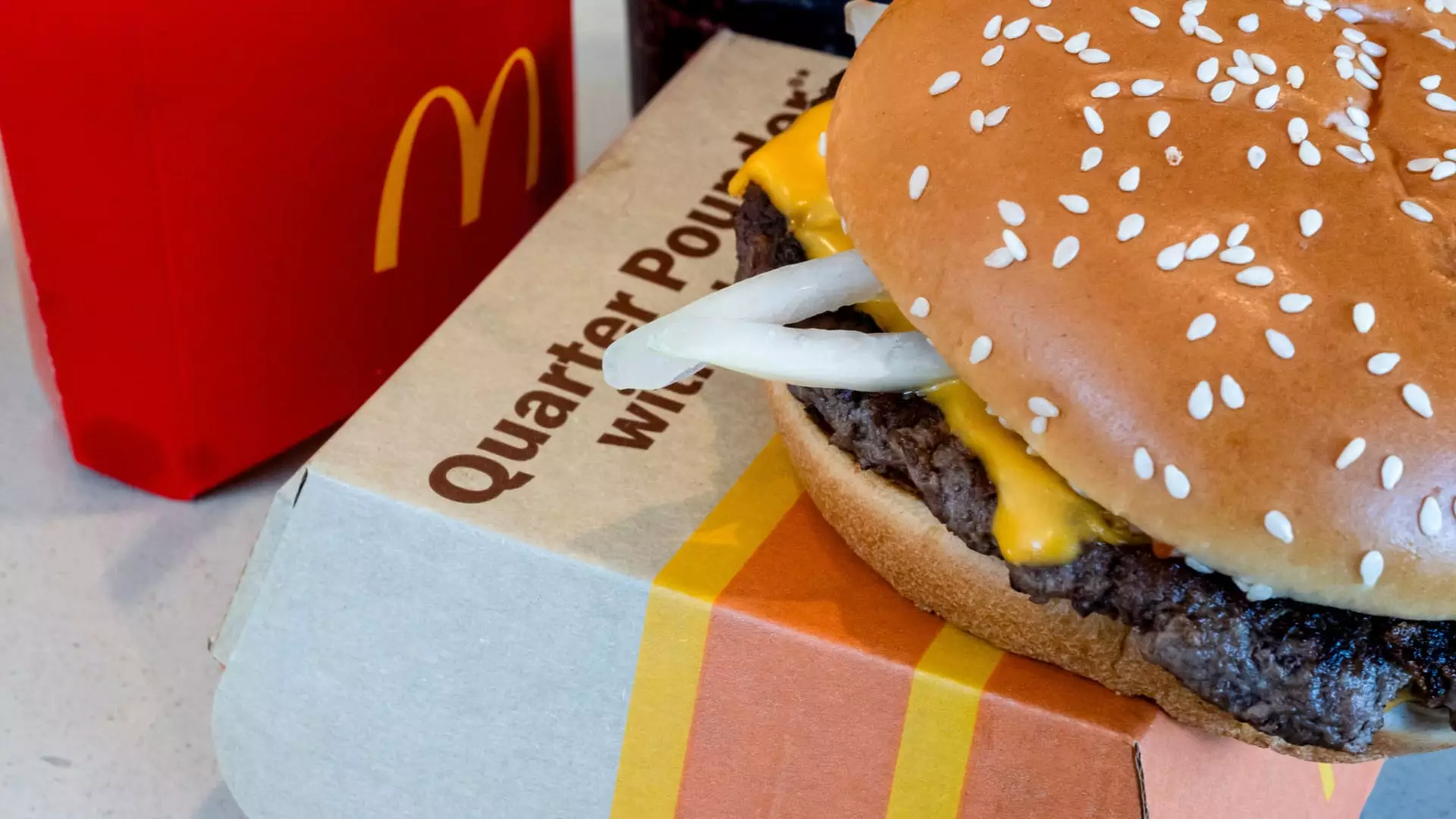In a concerning development for both consumer health and the fast-food industry, a recent E. coli outbreak has been traced back to McDonald’s iconic Quarter Pounder hamburgers. The outbreak has affected 75 individuals across 13 states, as reported by the Centers for Disease Control and Prevention (CDC). With 22 hospitalizations and one confirmed death of an elderly person in Colorado, the severity of this incident is alarming. The CDC is actively investigating the outbreak’s source, which raises critical questions about food safety protocols in major food chains.
Understanding the Impact of E. coli Infections
The CDC’s data indicates that the patients involved in this outbreak range in age from 13 to 88 years old, showcasing that E. coli does not discriminate by age. According to reports, 42 out of the 61 patients interviewed had consumed food at a McDonald’s location, with a significant number specifically consuming beef hamburgers. Importantly, hemolytic uremic syndrome, a serious condition that can lead to kidney failure, was noted in two of the infected individuals. Public health officials have warned that the actual case numbers could be significantly higher, as many E. coli infections go unreported due to mild symptoms or lack of medical attention.
The societal implications are profound—foodborne illnesses can deter consumer confidence and lead to vastly negative ramifications for the food industry. While the CDC has projected that many victims may not have undergone testing, the growing numbers indicate a pressing need for heightened vigilance.
Economic Repercussions for McDonald’s
Following the outbreak announcement, McDonald’s experienced a 2% decline in its stock, contributing to a total decrease of 6% since the outbreak was first made public. As a franchise that heavily relies on its core products, this E. coli incident is particularly damaging. With the Quarter Pounder being a flagship product, its association with health risks could deter customers. The economic ramifications for a company that has recently been struggling with sales highlight the delicate balance between public health and business viability.
To combat this crisis, McDonald’s has removed slivered onions—a primary ingredient in the affected Quarter Pounders—from its menu in numerous affected states, including Colorado, Kansas, and Utah. The company has identified California-based Taylor Farms as the supplier responsible for the onions now subjected to recall due to potential contamination. Such preemptive measures not only aim to safeguard public health but also attempt to restore consumer confidence in the brand.
In a show of solidarity amidst the crisis, other fast-food chains such as Burger King, Taco Bell, Pizza Hut, and KFC have also taken steps to retract onions from certain restaurant locations to minimize potential risk to their customers. This paints a picture of an industry that is cautiously proactive regarding food safety, where companies are taking the E. coli threat seriously and are willing to act in the interest of consumer health.
The collaboration between fast-food chains and health authorities serves to bolster efforts to contain the outbreak. Institutions like the CDC are actively tracing the outbreak’s path, further investigating the ground beef potentially implicated in this incident, therefore ensuring that all angles are thoroughly explored.
Currently, it remains too early to gauge the extent of the outbreak’s impact on McDonald’s customer traffic. The fast-food giant is trying to assuage consumer concerns by reaffirming the safety of its menu items while emphasizing their commitment to addressing this crisis comprehensively. As McDonald’s is slated to report its third-quarter earnings soon, observers are eager to hear how this situation has affected their performance.
Despite the fallout from this public health scare, experts have speculated that the long-term brand damage may not be as catastrophic as it potentially could be. Drawing parallels to a similar E. coli outbreak two years ago linked to Wendy’s, the analysts believe that with proper management and responsible communication, McDonald’s may weather this crisis with minimal lasting repercussions.
In light of this ongoing outbreak, it is critical for fast-food chains not only to enhance their food safety protocols but also to remain transparent and communicative with their customer base. Given that consumers today are more health-conscious than ever, how McDonald’s navigates this crisis could very well redefine its brand image. The potential for a renewed focus on food quality and safety measures could emerge as a silver lining to an unfortunate situation.
As the food industry continues to face challenges associated with health crises, the commitment to food safety practices will be of utmost importance in maintaining consumer trust and confidence. It is imperative for all players in the fast-food landscape to adopt a proactive stance to minimize the risk of future outbreaks.


Leave a Reply